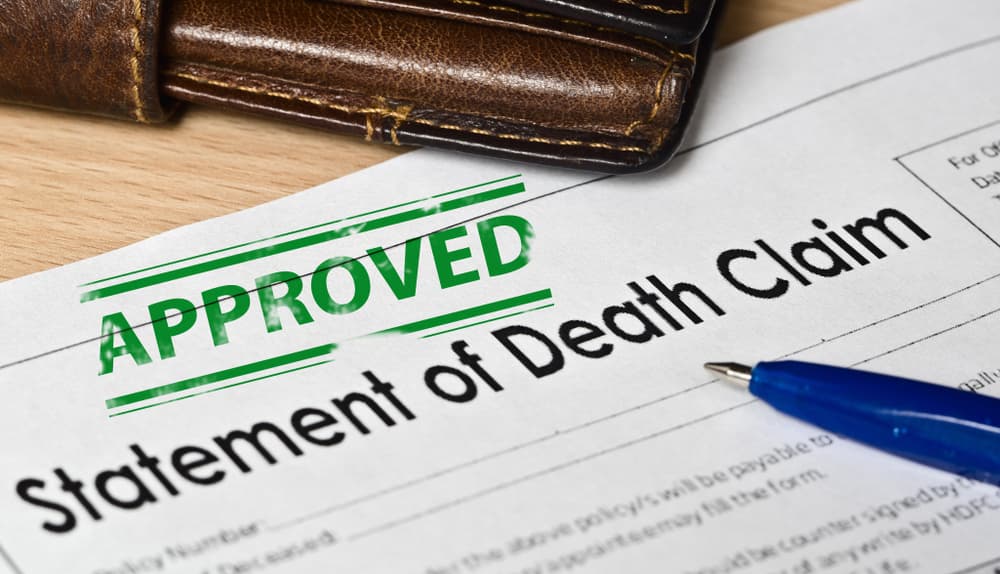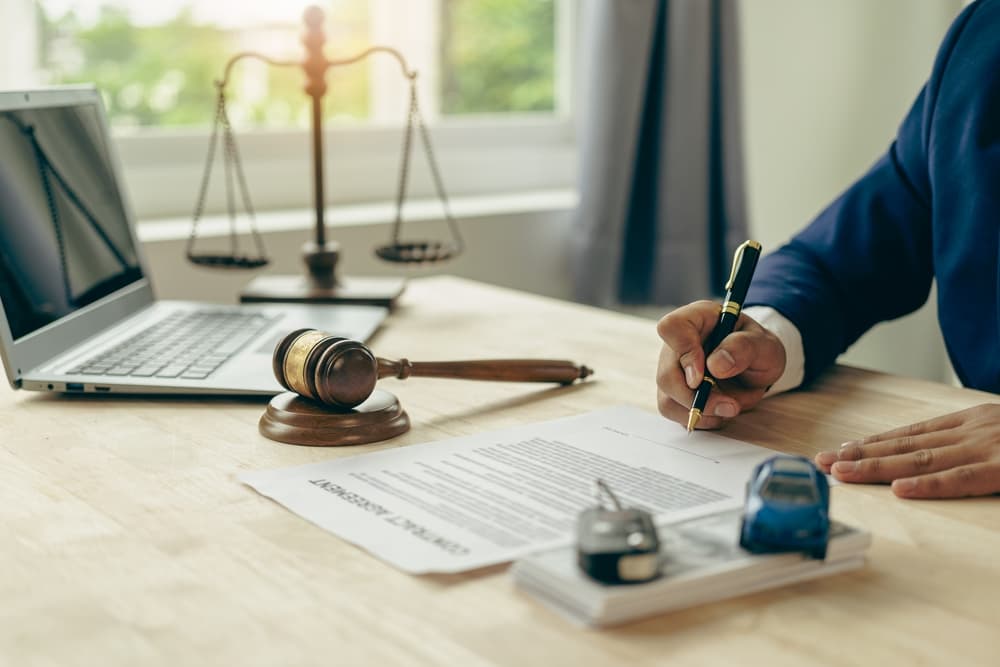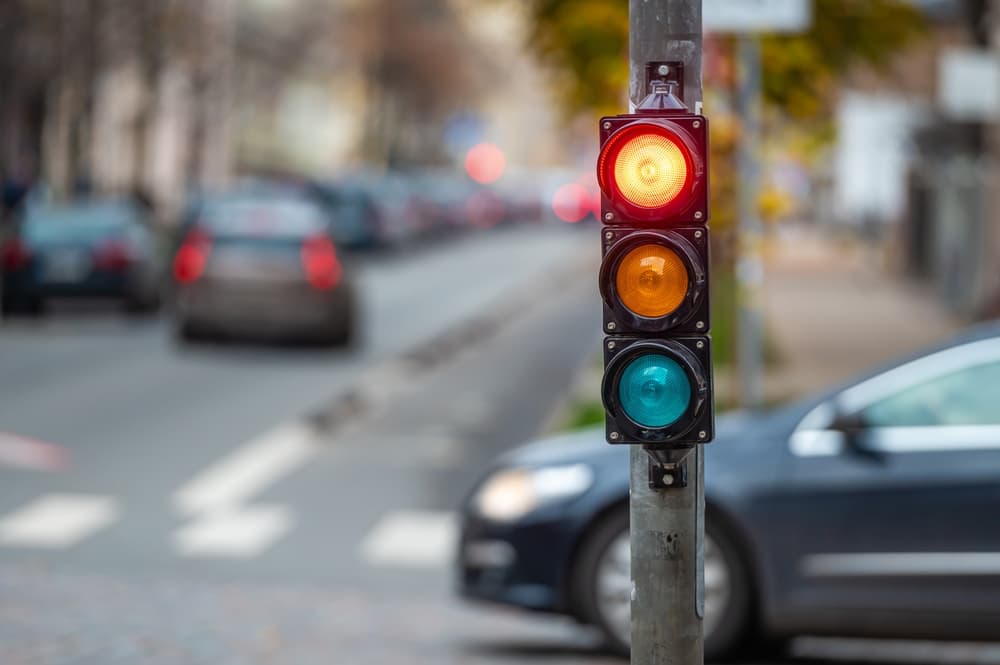Frequently, people harmed by negligence arising from an auto accident will pursue legal action in a court near where they live. That’s not always the case, though. Sometimes, the facts may indicate that litigating in another state makes the most sense. When the specifics of your auto accident case dictate pursuing justice in California, you need a California attorney. Whether you are a Californian or an out-of- state resident, a knowledgeable Santa Barbara car accident lawyer can be essential to your recovering vital compensation.
Once you’ve decided, in consultation with counsel, that litigating in California makes the most sense, be prepared for the possibility that your opponent may strive diligently to move the case somewhere else. They may believe that the laws and juries of another state will be less plaintiff-friendly. Whatever the reason, the law has some specific factors that courts use to decide these

location disputes, and a skillful legal team will know how to help you defeat this kind of defense motion.
A California wrongful death case arising from an auto crash in Ohio is a good example.
The deceased, C.L., was a 72-year-old man. According to news reports, the man was driving his Tesla when the car “left the roadway,” struck a gas station support pillar, and caught fire with C.L. still inside.
According to the man’s family, his car crashed – and he died – because of mechanical failures. One alleged failure was the vehicle’s self-driving feature. The autopiloted Tesla “suddenly accelerated forward,” missed a curve, and sped toward the gas station without ever braking or ceasing accelerating, according to the complaint. The impact with the pillar allegedly damaged the electric vehicle’s battery modules, causing a “thermal runaway,” which led to the especially intense and fast-moving fire.
The deceased man (and his wife) were residents of Pennsylvania. Tesla was a Delaware corporation based in Texas. The man’s family, however, launched their lawsuit in Santa Clara County, California. The case was removed to the federal district court for the Northern District of California. The automaker, however, wanted to move the case to the federal district court in Southern Ohio.
How Courts Decide Motions to Transfer Venue
When a party seeks to move your case to a different court location – called a “motion to transfer venue” – they must demonstrate certain things before the court will grant their request. Specifically, the law requires proof that the transfer “would serve the convenience of the parties and witnesses and promote the interests of justice.” Generally, courts will defer to a substantial degree to a filing party’s choice of court. That level of deference is lessened when the court a plaintiff chooses is neither their residence nor the site of the events triggering the lawsuit.
In this case, the widow was a Pennsylvanian and the crash occurred in Ohio, so her California case proceeded with that lower degree of deference. Lower deference doesn’t mean you’re doomed to lose, though, and this widow successfully defeated Tesla’s request.
One of the factors – and likely a critical one – working in the widow’s favor was the nature of her lawsuit itself. She alleged that the negligence at the center of her case related to design/manufacturing defects in her husband’s car. The widow’s complaint alleged that the husband’s vehicle was “designed, developed, manufactured,” and tested in California. In other words, the negligent actions or inactions that led to the car’s ultimate failure took place in California.
An additional factor that often is a key cog in the court’s ultimate decision is the “convenience of witnesses.” The automaker identified 16 witnesses who were governmental employees in Ohio. The widow, however, alleged that Tesla manufactured the car in California and that “Tesla engineers and other Tesla executives, managers, and employees involved in the design, development, manufacturing, testing, marketing and sales of Tesla vehicles and involved in the vehicles’ hardware, electronics, batteries, and software” were all based in California. Because the specifics of the crash, the fire, and C.L.’s death inside the car were “unlikely to be in dispute at trial” – all things about which the Ohio witnesses would testify -- the court decided that the issue of witness convenience tipped in favor of keeping the case in California.
Having persuaded the court that the essential elements were either neutral or slightly in favor of keeping the case in California, the widow successfully defeated the automaker’s motion to transfer.
Getting justice, including fair and appropriate compensation, often is a larger effort composed of wins in many smaller battles that lead up to the final outcome. Success often necessitates winning each of these battles, which means success often necessitates having the right legal team on your side. Rely on the knowledgeable Santa Barbara car accident attorneys at the personal injury law firm of Galine, Frye, Fitting & Frangos, LLP to be the helpful, skillful, and zealous advocate your case needs. Contact us at 805-617-1365 or through our website to get a free case consultation today.


